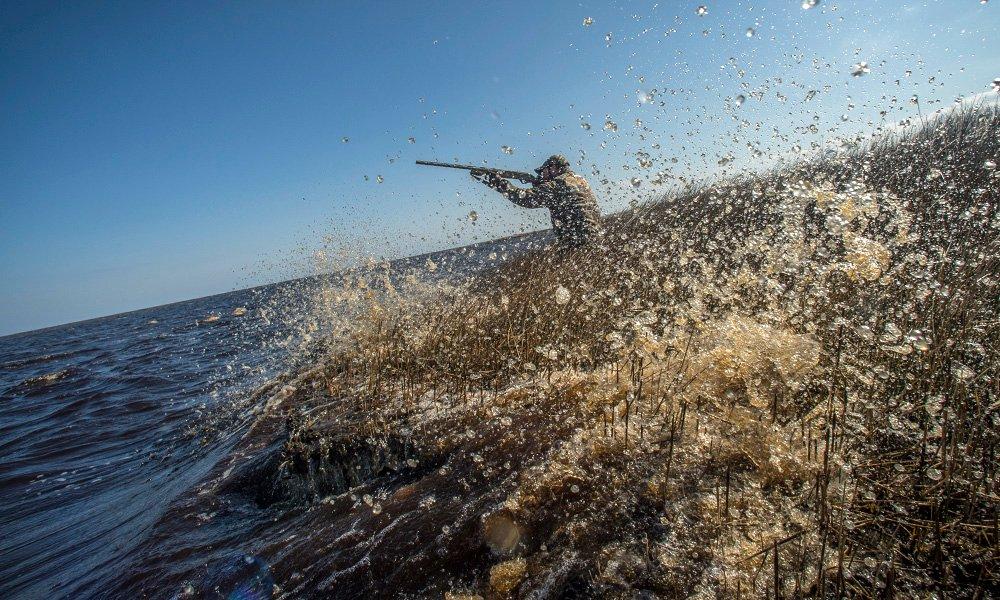From long drives to long walks, these five hunts are tough — and that's exactly what makes them so rewarding
Sometimes, duck and goose hunts can be astonishingly simple: Find birds, set up and shoot.
But many days, your circumstances and the elements conspire to make things tough. Occasionally, hunts are so difficult that they make you question whether you want to continue.
We should embrace those opportunities. Powering through a taxing day can pay off with heavy straps or full boats. Besides, what great waterfowling story ever started with anecdotes from a late-morning wake-up and an easy hunt on a beautiful day?
Here are five tough duck hunts you might experience — and should cherish when you do.
1. The Long Drive
When birds in your zip code aren't playing, or if you simply want different scenery or a new experience, you must travel. Whether that means a midnight alarm or a 15-hour trek to Canada, you're often in for a long drive.
So embrace it. Use that windshield time to plot strategy and build anticipation for the hunt. Just remember to be safe. Get plenty of sleep the night before a road trip, and take breaks when needed. Traveling with a partner eases the monotony and lets you trade driving duties.
2. The Long Walk
Ducks rarely offer great opportunities right off paved roads. Usually you must travel long distances to access remote hotspots, such as distant timber holes or far-off prairie sloughs. And if you can't do that via boat, you have to hoof it.
Lace up your boots and get after it. The exercise won't kill you, and every step you take puts you farther from the competition and closer to a limit. Rig lightweight decoys in easily transportable bags, or pull a cart or sled to make the trek easier.
3. The Long Sit
Every duck hunter remembers the day he filled up in five minutes. That's because those days are rare. Often, you must wait on ducks, sometimes for seemingly endless hours as they trickle in. Don't view these grinders as a test. Instead, realize that they offer more opportunity to soak up the marsh and enjoy the experience. Resolve to stay sharp and focused throughout the hunt, and remember that every minute that passes without ducks brings you closer to another encounter.
4. Tests of Physical Endurance
Many duck hunts occur in challenging conditions, including bitter cold, high winds, annoying precipitation or even high heat. But you can't control the weather, so don't begrudge it. Instead, prepare accordingly. Always have appropriate clothing ready, whether that's light early season gear or lots of warm layers and a waterproof shell. Further, remember that many weather events — especially wind, snow and approaching fronts — get birds moving. Brave the elements and take advantage of them.
5. Tests of Mental Acuity
Hunts that challenge your acumen might be the toughest challenges of all. Often, ducks and geese don't play by the rules, and you must think your way to a limit. The process is simple: Plan and prepare, then observe and be ready to react. Are ducks short-stopping your spread? Switch it. Birds skirting your setup? Move. Nothing finishing? Double-check your cover and decoys.
You get the idea. Always be critical of your approach, and respond quickly if birds don't act accordingly.
Remember, you won't ace every test. But guessing right on a few mental challenges each season will put a lot more photos in your hunting album.
Click here for more Realtree waterfowl hunting content. And check us out on Facebook.







